- Português (Brasil)
- Español
- English
- magyar / magyar nyelv
- Título original: 西遊記
- Também conhecido como: Journey to the west , The Adventures of Super Monkey
- Roteirista: Sakamoto Yuji
- Diretor: Katou Yuusuke, Sawada Kensaku, Narita Gaku
- Gêneros: Aventura, Comédia, Fantasia
Elenco e Créditos
- Fukatsu EriHoshi SanzoPapel Principal
- Mizukawa AsamiRin RinPapel Principal
- Katori ShingoSon GokuPapel Principal
- Ito AtsushiCho HakkaiPapel Secundário
- Uchimura TeruyoshiSagojoPapel Secundário
- Miura RiekoToreiConvidado
Resenhas

Sakamoto Yuji's Version of a Chinese Classic
It is surprising that this series is not well known or remembered - it was the most viewed Jdrama on broadcast TV in Japan for all of 2006, is based on an extremely well-known classic of Chinese literature and was written by one of Japan's best screenwriters, Sakamoto Yuji. Part of the reason, undoubtedly, is that it is pitched towards an age range that would be watching and enjoying Power Rangers or Kamen Rider with lots of broad acting, obligatory climactic fight scenes, fart jokes and a surprising amount of male urination. It's almost certainly not the best version of Journey To The West of the last few decades (Steven Chow's first film deconstruction of the story probably takes that crown), but it is a good, wholesome take on the old Buddhist children's story with some unexpected twists along the way.At eleven episodes Saiyuuki is a comparatively brief version of these tales, and, thus, this series skips the origin story of Goku (the Monkey King) and starts with the Japanese version of Tripikata, Sanzo Hoshi, freeing Goku from his 500 years of imprisonment in a rock and the Avenger team of Sa Gojo (Brother Sand) and Cho Hakkai (Brother Pig) already assembled for the journey. Each episode tells the story of the group encountering a demon along the way and overcoming the corresponding challenge with most of the encounters invented for this version (I'm pretty sure, for instance, there was no chapter involving time travel when I read a translation of the books). As is usual, for this series the group seeks to reach a sacred mountain, meet an incarnation of the Buddha and receive sacred scriptures, and no time is spent at all on the return to Chang'an.
Like the famous Japanese version from 1978 (the actor who played Goku in that version, Masski Sakai, appears here in the final episode as the Buddha), Sanzo Hoshi is played by a woman (in this case, Fukatsu Eri) but given he/him pronouns (at least in the version of the subs I watched). As in most versions of Journey To The West, Sanzo Hoshi is repeatedly captured and rescued by the rest of the troupe, but Sakamoto does give the character a bit more agency than usual. Sakamoto also adds an entirely noncanonical character in the form of a female thief, Rinrin, whose path intersects that of the travelers and ultimately becomes one of the team. Rinrin played by Mizukawa Asami is probably one of the best reasons to check out this version of the tale by providing a good, bantering foil and general competence in contrast to the impulsiveness of Goku.
Goku, as usual, is the focus of series, and is played by Katori Shingo who plays the Monkey King as kind of a blustering dumb jock/warrior but with some nice, quieter empathetic moments as well. Most episodes end with a fight scene where Goku's staff ultimately comes down on the head of the demon of the week who is then carted off to hell by a markedly breast-obsessed Taoist deity, Roushi (Lao Tzu) played by Okura Koji.
The 2006 version of Saiyuuki is a broad, largely comedic children's show with some nice lessons about working together and acceptance. Nevertheless, there are some surprisingly strong emotional beats along the way. It is probably worth seeking out, particularly if you enjoy Sakamoto's other series.
Esta resenha foi útil para você?
Recomendações
There have been no recommendations submitted. Be the first and add one.

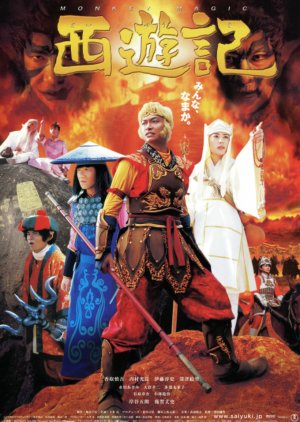






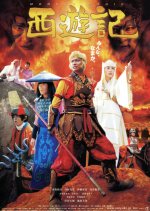
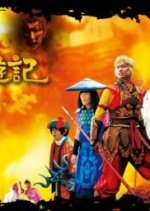




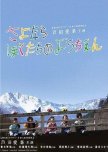

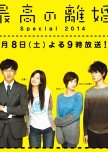
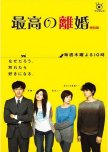

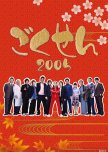

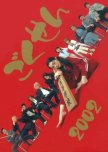
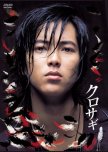

![[✔] Completed Dramas in 2018](https://i.mydramalist.com/elLJdt.jpg)
![[✔] Completed Dramas in 2018](https://i.mydramalist.com/AzeX8t.jpg)
![[✔] Completed Dramas in 2018](https://i.mydramalist.com/X4Z0Ot.jpg)
![[✔] Completed Dramas in 2018](https://i.mydramalist.com/xkNgyt.jpg)
![[✔] Completed Dramas in 2018](https://i.mydramalist.com/Bp8Qlt.jpg)
















